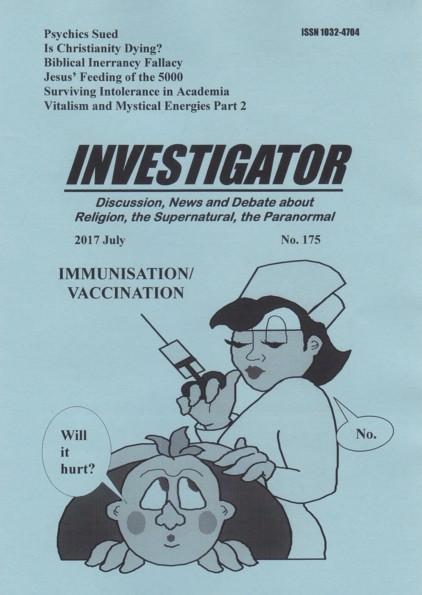
This image: From IMSI's MasterClips/MasterPhotos 202,000 © 1997 Collection,
1895 Francisco Blvd. East, San Rafael, CA 94901-5506 , USA
1895 Francisco Blvd. East, San Rafael, CA 94901-5506 , USA
IMMUNlSATION VACCINATION
(Investigator 175, 2017 July)
(Investigator 175, 2017 July)
History
Edward Jenner (1749-1823), theorised that cowpox included two different forms of disease, and that one of them — fluid from the sores of vaccinia, a disease of cattle, could be used to inoculate humans against smallpox.
The theory was successfully tested in 1796, and again in 1798, when he published his Inquiry into the Cause and Effects of the Variolae Vaccinae.
Henry Cline, surgeon of St. Thomas's hospital, London, made a number of successful inoculations against smallpox and thereby brought vaccination before the previously prejudiced medical profession.
In 1803, the Royal Jennerian Society For The Proper Spread Of Vaccination in London was established resulting in a drastic reduction of average deaths from smallpox.
In France, Louis Pasteur (1822-1895) discovered that by culturing a disease then injecting it into an animal, he could produce immunity to the disease. In 1881 Pasteur demonstrated immunisation against anthrax and four years later developed a rabies vaccine.
Subsequent developments of other immunising agents have contributed to the elimination of smallpox and the reduction in the incidence of many others.
Theory
The introduction into the body of a vaccine composed of suspensions of living or dead micro-organisms of a specific kind will stimulate the body cells to combat the invasion of disease-producing micro-organisms or help control the spread of infectious agents already established in the body.
Practice
Immunisation by injection or taken orally.
Assessment
In medicine, no matter how comprehensive the trials, no matter how conclusive the results, there is always that remote possibility that some people will react adversely to an otherwise safe procedure. Unfortunately, it is the exception to the rule which receives the most publicity.
The objections to immunisation are based principally on anecdotal evidence, and include the belief that complications following immunisation are more common and more serious than the medical profession is prepared to admit. This, coupled with the media's predilection for sensationalising the irrational has, in recent times, been partly responsible for the rising incidence of epidemics of infectious diseases previously under control.
On the other hand, overwhelming evidence cited for the efficacy of immunisation (Basser 1997) is borne out by a perusal of statistics from all over the world. In Japan for example, following the suspension of immunisation in1975, the number of pertussis (whooping cough) cases jumped from an average of 350 per year to over 13,000 per year in 1979. Conversely, in Sweden following the commencement of MMR immunisation in 1982, the number of measles and encephalitis cases dropped from an average of 330 per annum to an average of 10. Likewise in the USA, following the introduction of measles immunisation in 1963-64 there was an eighty per cent decline in measles cases and related deaths.
In both Sri Lanka and Bangladesh, neonatal tetanus is now rare due to immunisation. Epiglottitis has been all but eliminated in Finland. The incidence of Japanese encephalitis in India, China and Japan has dropped markedly and thanks to vaccines, smallpox has been eradicated worldwide and public health officials expect that polio will be eradicated within the next few years.
There can be no doubt that the risks associated with immunisation are negligible and are far outweighed by the advantages. Unfortunately, the anti-immunisation lobby has not been above spreading misinformation and lies in effort to achieve their aims.
References:
Basser, Dr. Stephen. 1997. Anti-immunisation scare: the inconvenient facts. the Skeptic, Vol. l7, No.1, pl8-25.
Gordon, Dr. Richard. 1991. Immunisation Under Threat, the Skeptic, Vol. II, No.3, p8-9.
Meyerson, Michael. 1997. Immunisation: a rational perspective. the Skeptic, Vol. 17. No. 1. p.I6-17. Australian Skeptics Inc.
From: Edwards, H. 1999 Alternative, Complementary, Holistic &
Spiritual Healing, Australian Skeptics Inc
A website
with over 2200 articles analyzing religion, the supernatural and the
paranormal,
including alternative healing methods, miracles, strange beliefs, various religions, and the Bible:
including alternative healing methods, miracles, strange beliefs, various religions, and the Bible: